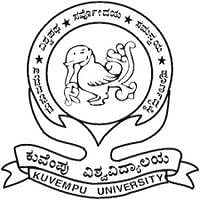MBE Syllabus and Subjects 2026 - Semester Wise

MBE syllabus is of two years for full-time students. MBE subjects are spread across four semesters. The Master of Business Economics subjects are designed to give the students a deeper understanding of the course and specialisation they choose to pursue.
Semester Wise MBE Syllabus
MBE course aims to ensure that the students are able to understand the depth of business economics at a master’s level. The MBE 1st year syllabus primarily focuses on the foundational subjects related to the field of economics. Due to this reason, the Master of Business Economics syllabus for the first year doesn’t change all that much.
The MBE course introduces students to all the vital information they need. Listed below are the syllabi of MBE according to the semester which is core subject and therefore, tend to be the same across the board.
MBE First Year Syllabus
The table below contains the list of MBE subjects in the first year:
|
Semester I |
Semester II |
|
Economic Analysis for Business Decisions–I |
Economic Analysis for Business Decisions–II |
|
Quantitative Techniques for Business |
Operations Research |
|
Computer Applications for Business |
Banking and Foreign Exchange Management |
|
Business Finance & Accounting |
Industrial Structure, Organization and Policy |
|
Organisational Principles and Behaviour |
Consumer Behaviour and Marketing Management |
MBE Second Year Syllabus
The table below contains the list of MBE subjects in the second year:
|
Semester III |
Semester IV |
|
International Trade and Business Procedures |
Project Appraisal and Investment Planning |
|
Advertising and Sales Management |
Labour Economics and Industrial Relations |
|
Investment Theory and Portfolio Management |
Business Policy and Strategy |
|
Indian and Global Economics Environment |
Information Technology |
|
Management Information System |
Forecasting and Business Planning |
|
Econometric Techniques |
Project Report |
MBE Subjects
MBE subjects are dependent on the specialisation that the aspirants decide to pursue. MBE subjects are decided based on the core topics in economics, as well as the topics in the specialisation. MBE subjects are divided into core and elective subjects. The elective subjects are optional subjects that make the course flexible and diverse.
MBE Core Subjects
The core MBE subjects list contains essential subjects that all MBE students study irrespective of their specialisation, which is as follows:
- International Trade and Business Procedures
- Project Appraisal and Investment Planning
- Advertising and Sales Management
- Labour Economics and Industrial Relations
MBE Course Structure
The MBE course structure consists of both core and elective subjects. The course is a two-year-long postgraduate course, divided into four semesters. From the third semester onwards, students are introduced to specific subjects related to their specialisation. The course structure is:
- IV Semesters
- Core Subjects
- Postgraduate Course
- Research Project
MBE Teaching Methodology and Techniques
MBE teaching methodology and techniques encompass traditional lecture-based training. The traditional classroom teaching methods allow the students to ask the queries they might have and get answers to them. The course has teaching methodologies and techniques designed to ensure that the students pursuing this course have access to all the infrastructure and facilities available.
Listed below are the teaching methodology and strategies in general:
- Lectures
- Practical Sessions
- Research Papers
- Seminars
- Group Discussions
- Traditional Classroom-Based Teaching
MBE Projects
When pursuing a Master of Business Economics course, research projects are an integral part of the studies. These projects are assessed by the professors to judge the student's understanding of the subjects. Students can choose their project topics based on the specialisation they choose to pursue. Some of the popular research projects are listed below:
- International Trade
- Project Investment Planning
- Sales Management
- Labour Economics
MBE Books
When pursuing an MBE, books can be a great investment for the students as they can really help them learn about their specialisation in great detail. Books can be a source of information for the students whereby they can further learn about topics of their interest. Students can rent out reference books from libraries, download them online or purchase them. Listed below are some of the popular MBE course books that the students can invest in:
|
Name of Book |
Author |
|
The Man Who Knew |
Sebastian Mallaby |
|
When Markets Collide |
Mohamed El-Erian |
|
Lords of Finance |
Liaquat Ahamed |
|
Capital in the Twenty-First Century |
Thomas Piketty |













